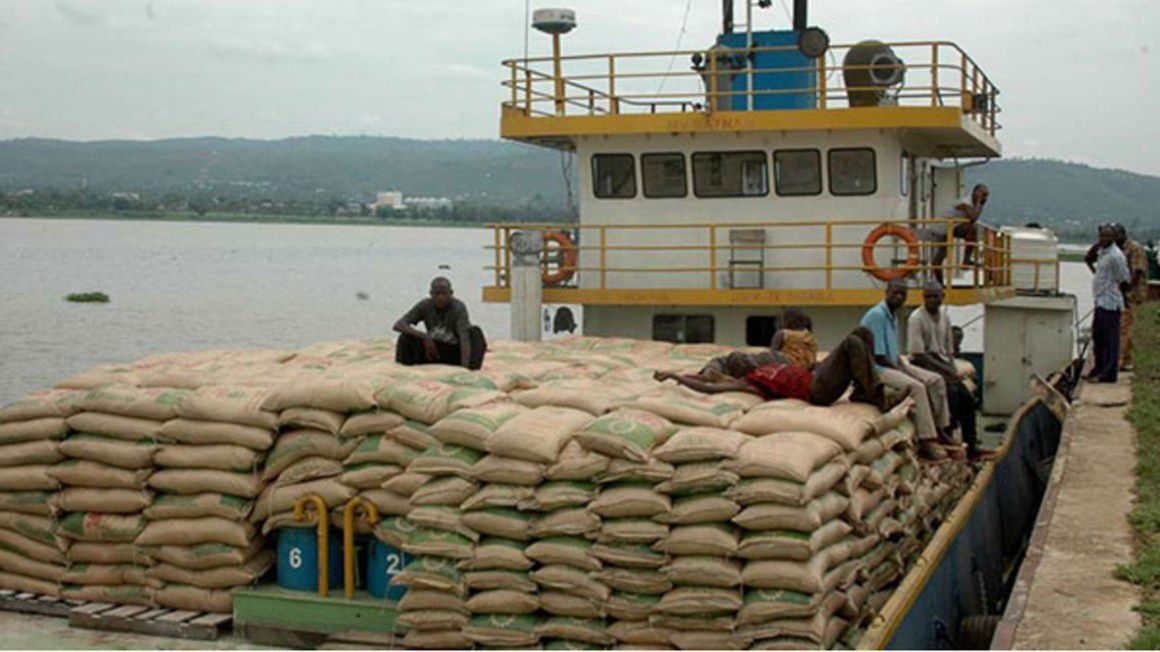
Sugar from Uganda at the Kisumu pier in western Kenya. PHOTO | FILE | NMG
Dar es Salaam. The government’s intention to build local sugar processing capacity could be in jeopardy if barons are left to re-emerge, analysts say.
During the past few years, investors have injected colossal sums of money into sugar production in an effort to meet the government’s goal of ensuring that Tanzania becomes self-sufficient in the product by 2025.
These includes the approval of a Sh571.6 billion expansion project for Kilombero Sugar; Said Salim Bakhresa’s $300 million (about Sh690 billion) Bagamoyo Sugar Ltd, and the Mkulazi Sugar Company in Morogoro which is being implemented by the National Social Security Fund (NSSF).
The Kilombero Sugar project seeks to almost double the firm’s production capacity from 144,000 tonnes to 271,000 tonnes annually, while Bagamoyo Sugar Ltd is to start with an installed annual production capacity for 30,000-35,000 tonnes, before expanding to 100,000 tonnes. NSSF’s Mkulazi Sugar project is expected to add 50,000 tonnes of sugar to the domestic market.
The projects are enough to fill Tanzania’s sugar deficit.
But, what came up during a business meeting that was attended by President Samia Suluhu Hassan and her Ugandan counterpart, President Yoweri Museveni, points to the possibility that sugar imports could persist.
President Hassan said she was informed that members of the business community in Uganda had surplus sugar which they wanted to export to Tanzania but that they were discouraged by a statement by the minister (for Agriculture), who said no imports would be procured.
“That was nonsense. Honourable President, we are going to buy sugar from Uganda,” President Hassan told her Ugandan counterpart in a live televised event.
But, yesterday, the Kilombero Sugar Company board chairman, Mr Ami Mpungwe, said in a confirmed tweet that “It is clear President Museveni misled/misinformed our President. Certainly, all sugar companies imported sugar from Uganda this year, including the one still under construction, Bagamoyo Sugar, despite Ugandan sugar being the least price-competitive in the region. Kilombero Sugar bought 4,300 tonnes.”
Contacted to speak on the matter, Mr Mpungwe said there were three businessmen who controlled the sugar business in the past - and that the three could be struggling to regain their status after the government and producers’ deal to manage the sugar industry.
“They are doing that after stabilisation of the sugar market that was in the past saturated with subsidised sugar imports, making the local product less competitive,” he said over the phone.
Mr Mpungwe, who is also a former Tanzanian ambassador to South Africa, said in order to manage the industry, local producers and the government agreed to establish the country’s exact sugar deficit - and import at the right time.
He said they also agreed to import at the accurate tariff and provide import shares at the pro rata, or proportionate allotment among local sugar producers.
According to him, the agreement saw the increase of trust among investors, including the Kilombero Sugar Company that injected $238.5 million in its expansion plan.
Mr Mpungwe said delayed provision of sugar import permits this year forced Tanzanian importers to procure sugar from Uganda virtually next-door.
“I stand by those behind the maintenance of the current sugar import procedures that have stabilised the sector after years of arbitrary importations,” he said.
“Importations priority will be given to regional markets that will help us to cut supply chains after providing us with competitive prices.”
But, sugar import and export traders said they were supportive of an environment that did not confer a monopoly of any kind to a section of the society.
“The sugar import business as we know it has currently been monopolized as sugar producers take advantage of the fact that they are the only ones allowed to trade in the essential commodity,” one of the traders told The Citizen in a telephone interview on a condition of anonymity.
Another trader said those who had been playing in the sector and individual investors have been targeted for exclusion from the trade by Tanzania’s main sugar importers for fear of competition.
“The sugar trade protectionism in the country is not helping the consumer or sugar cane farmers as would be expected,” noted the trader, adding that dealing in the import of the commodity was now almost paralleling the war against narcotics.
They support and welcome President Hassan’s stance that Tanzania should import sugar from Uganda and other regional markets to fill in the deficit in local production.
“For fair competition - and for consumers to benefit - we advocate that sugar producers be stripped of the monopoly they are enjoying. It is surprising that local sugar producers would fear competition from a member of the East Africa Community (EAC) despite the applicable common customs tariff regime,” said the trader.
Contacted on this, the director general of the Sugar Board of Tanzania (SBT), Mr Kenneth Bengesi, declined to comment. “I travelled out of the country and, therefore, am unfamiliar with the new developments. Until when I’m well informed, I reserve my comments,” he said, somewhat defensively.
The Minister of Agriculture, Prof Adolf Mkenda, is shown in a video clip warning traders who pester SBT over sugar import permits to stop doing so.
He said sugar imports have been linked to corruption and fraud involving a few unscrupulous persons at the expense of the majority of Tanzanians.
“The business is like narcotics that have forced some ministers to quit in the past. However, the amendment of the Act has made provisions for sugar import permits processing,” he said.
In another video clip, the late former President John Magufuli - who died in office on March 17 this year - had instructed Prime Minister Kassim Majaliwa at the time to ensure the proper provision of sugar import permits while the government planned to attract more investors in domestic sugar production - thereby creating jobs for the youth, and a reliable domestic market for sugarcane out-growers.




No comments :
Post a Comment